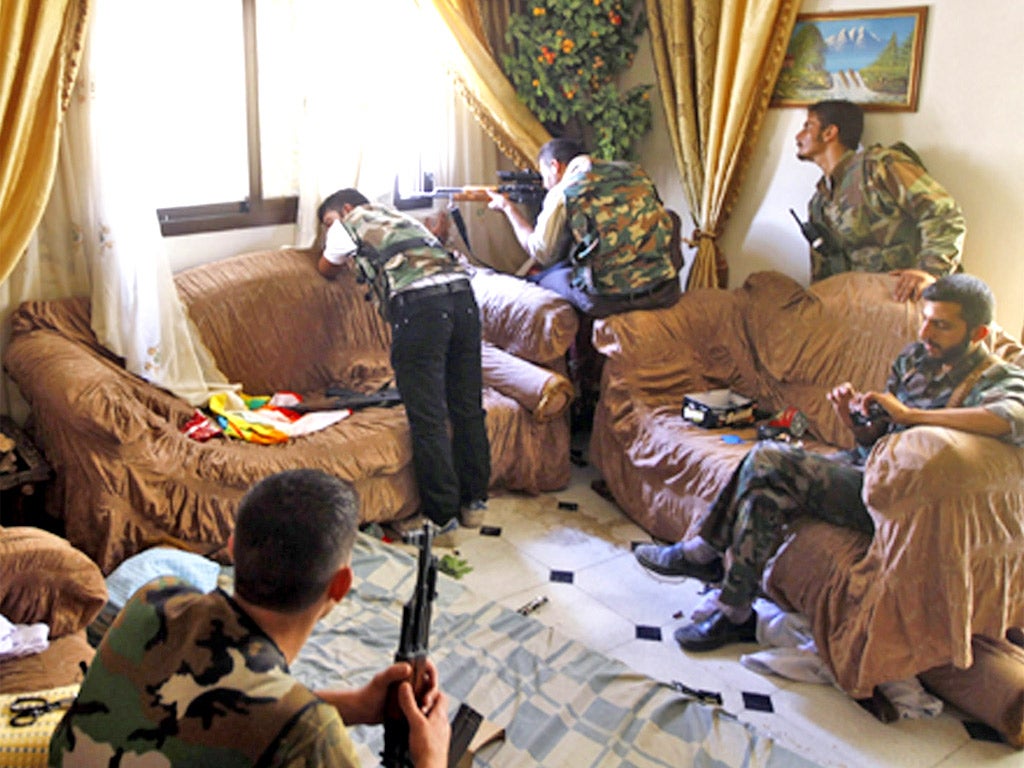Assad regime 'controls less than a third of Syria', claims former premier
Riad Hijab urges army to defect as rebel forces continue to make gains

The former Syrian Prime Minister yesterday delivered a withering assessment of the regime's grip on power, describing it as on the brink of collapse with President Bashar al-Assad's forces in control just a third of the country.
In his first public appearance since fleeing the country, Riad Hijab, the most senior civilian official to defect so far, said others prominent figures were waiting for their moment to do the same.
"The regime is collapsing, morally, materially and economically," he said, speaking in front of a revolutionary flag at a press conference in the Jordanian capital Amman. "Militarily it is crumbling as it no longer occupies more than 30 per cent of Syrian territory."
The former agriculture minister, who held the position of prime minister for just two months, urged the army to follow the example set in Egypt and "take the side of the people".
Analysts said that despite not being a key member of Assad's inner circle, Mr Hijab – who the US said would no longer be subject to sanctions – is likely to have had some access to briefings on the military situation on the ground.
The Free Syrian Army said Mr Hijab's statement on the Syrian army's control was broadly accurate, but stressed that it did not mean that the majority of the country is under its control.
"We agree that more than 60 per cent of Syria is out of the control of the regime," said the FSA logistical co-ordinator Louay al-Mokdad. "We are not saying that we are controlling it – it's out of control of anyone because there is war and battles every day."
With reporting in Syria restricted, verifying such claims is difficult. However, daily battles rage in most of the towns and cities that stretch along the country's western flank – from Aleppo in the north, through Homs and Hama to the capital Damascus and Deraa in the south. Rebels have also made gains in the Sunni heartland of Deir Ezzor in the east.
However, Jeffrey White, a military analyst specialising in Syria at the US-based Washington Institute for Near East Policy, said Mr Hijab's assessment "understates" the Syrian army's presence.
"Even in an area like Idlib province where it's generally considered the Syrian army is not in control of broad swathes, you still see the presence of regime forces, " he said.
With much of the country engulfed in fighting, the UN emergency relief co-ordinator Baroness Amos arrived in Damascus yesterday to attempt to mitigate the unfolding humanitarian crisis.
Many civilians struggle to get food, water and medical care and residents of Homs say they spend hours every day waiting in line for bread, risking their lives just leaving the house. Many lack funds after being out of work for months due to the conflict, but large areas also suffer severe supply shortages and prices have skyrocketed.
Baroness Amos – who said around 2.5 million Syrians are in need of assistance – is pushing the regime to allow better access for aid agencies. However, any progress will remain stymied by the security situation on the ground.
Already isolated internationally, the regime suffered a further blow yesterday, as a meeting of the Organisation of Islamic Co-operation voted to suspend Syria.
In an increasingly sectarian conflict, rebels released a video of a man they claimed was a member of the Lebanese Shia militant group Hezbollah, which is allied with the Syrian government and Iran. Black-eyed, bruised and surrounded by three armed FSA fighters, Hassan Meqdad "confessed" to being a sniper sent to Syria by the Hezbollah leader Hassan Nasrallah as part of a 1,500-strong force. Hezbollah and Mr Meqdad's family denied he was a member of the group.
Join our commenting forum
Join thought-provoking conversations, follow other Independent readers and see their replies
Comments
Bookmark popover
Removed from bookmarks